Why study Physics and Scientific Modelling
Rasmus Godiksen
Director, Head of Risk Management, EKF Denmark’s Export Credit Agency
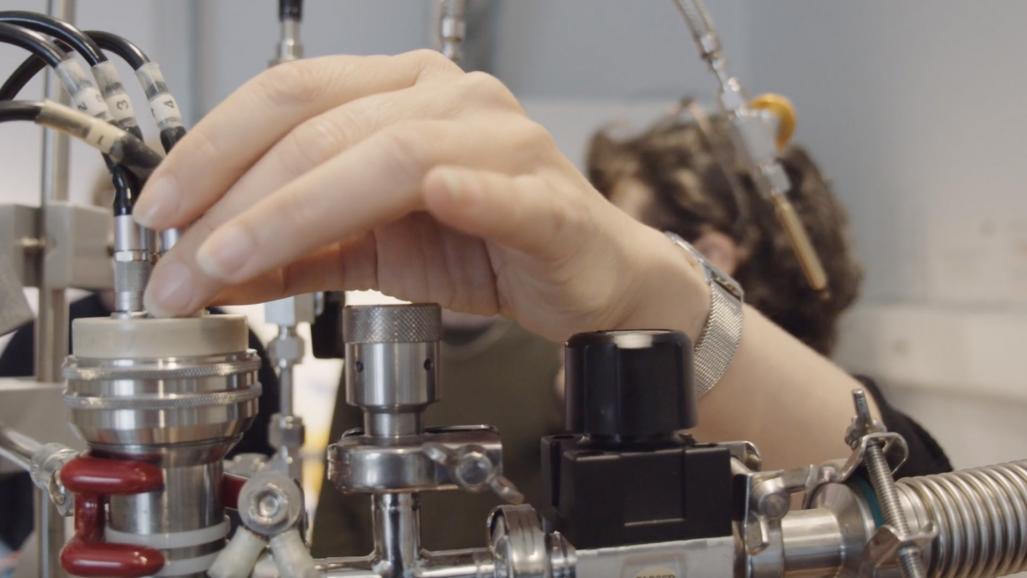
Physics and Scientific Modelling provides training in experimental, theoretical, and numeric methods to solve problems in physics and other fields. The weighting of experiments, theory and numeric techniques is determined by your choices in the study programme.
The point of departure is the understanding of physics and the laws of nature, but in this study programme, there is a special focus on independent work in identifying which physical concepts and mathematical and numerical methods that are relevant to solve a given problem. In the projects, it is possible to immerse yourself in experimental, computer science and / or mathematical aspects of modelling. At the same time, it is possible to apply the physics competencies outside of classical physics subjects if you want a clear interdisciplinary profile.
The aim of the study programme is to give you competencies and methods to work systematically and critically with physics, modelling and data science in connection with problems in a wide range of fields.
The programme can be tuned to give different profiles depending on how the elective courses are chosen and the type of projects the student works with. Particularly there is the option of following one of three predefined thematic profiles. You can choose to specialise in:
- Experimental and Computational Physics
- Mathematical Foundation of Physics and Scientific Modelling
- Experimental and computational biophysics
It is also possible to follow the programme with an individual approach based on combining elective courses within Physics and Scientific Modelling.
At Physics and Scientific Modelling you will as a student become part of the study- and research environment linked to the programme and the department of Science and Environment. In addition to the education, you will be invited to academic seminars, student run events as the Natcafé, boardgames nights and an annual alumni event, where you can meet former students. The teaching consists of 50 % courses and 50 % project work, where you and your co-students set the direction of your studies.
The master’s programme in Physics and Scientific Modelling will give you a strong professional position in the labour market and a solid starting point for research. The programme will enable you to:
Our candidates graduate to a wealth of opportunities within teaching, research, and development in all areas and sectors where physics, mathematics and scientific modelling play a role. You can find jobs in the energy sector, hospital physics, medicine, finance, software development, data science as well as in companies that either provide or purchase modelling or consultancy tasks.
Job titles include senior engineer, forecast analyst, industry technology specialist, physics and mathematics high school teacher, lead data scientist, quant, project manager, PhD student or professor.
The programme is closed for admission. Only students holding a bachelor’s degree from Roskilde University with a legal right of admission (retskrav) can still be admitted. The following bachelor’s programmes from Roskilde University give legal right of admission to Physics and Scientific Modelling:
Naturvidenskabelig bachelor with one of the following combinations:
Fysik + Environmental Biology
Fysik + Filosofi og videnskabsteori
Fysik + Kemi
Fysik + Medicinalbiologi
Physics + Chemistry
Physics + Computer Science
Physics + Datalogi
Physics + Environmental Biology
Physics + Mathematics
Physics + Molecular Biology
International tt备用网址 in Natural Sciences with one of the following combinations:
Fysik + Environmental Biology
Physics + Chemistry
Physics + Computer Science
Physics + Datalogi
Physics + Environmental Biology
Physics + Mathematics
Physics + Molecular Biology
From the second semester, you shape your education yourself. You can specialise in:
The focus is on the practical implementation of physics and scientific modelling. This includes a focus on the process of acquiring data via experiments or scientific computing and on data analysis and data science.
The focus is on the role of mathematics in modelling and gives insight into the mathematical way of thinking and how it differs from physics. The theme has a focus on logic and proofs and gives a classical academic profile which for example is relevant for teaching.
Analogous to that of experimental and computational physics, but with a focus on data acquisition, analysis and modelling in the specific area of biophysics, biochemistry, and bioscience.
| 1. year | 2. year | ||
|---|---|---|---|
| 1 semester | 2 semester | 3 semester | 4 semester |
| Course
Experiments and Models – Linear Response and Structure and Dynamics of Condensed Matter 10 ECTS |
Course
Integrated Science 5 ECTS |
Course
Problem Solving in Physics II 10 ECTS |
Master Thesis
Thesis in Physics and Scientific Modelling 30 ECTS |
| Course
Probability and Statistics 5 ECTS |
|||
| Course
Statistical Physics with Scientific Programming 5 ECTS |
Course
Problem Solving in Physics I 5 ECTS |
Course
Parameter Estimation 5 ECTS |
|
| Project
Modelling Project 15 ECTS |
Course
Scientific Computing and Data Science 10 ECTS |
Project
Specialisation Project or Internship Project-oriented Internship 15 ECTS |
|
| Kursus
Differential Equations in Models 5 ECTS |
|||
Study regulations: Study regulation for Physics and Scientific Modelling (pdf)
| 1. year | 2. year | ||
|---|---|---|---|
| 1 semester | 2 semester | 3 semester | 4 semester |
| Course
Experiments and Models – Linear Response and Structure and Dynamics of Condensed Matter 10 ECTS |
Course
Integrated Science 5 ECTS |
Course
Problem Solving in Physics II 10 ECTS |
Master Thesis
Thesis in Physics and Scientific Modelling 30 ECTS |
| Course
Probability and Statistics 5 ECTS |
|||
| Course
Statistical Physics with Scientific Programming 5 ECTS |
Course
Problem Solving in Physics I 5 ECTS |
Course
Differential Geometry 5 ECTS |
|
| Project
Modelling Project 15 ECTS |
Course
Advanced Topics in Mathematics 10 ECTS |
Project
Specialisation Project or Internship Project-oriented Internship 15 ECTS |
|
| Course
Dynamical Systems Analysis 5 ECTS |
|||
Study regulations: Study regulation for Physics and Scientific Modelling (pdf)
| 1. year | 2. year | ||
|---|---|---|---|
| 1 semester | 2 semester | 3 semester | 4 semester |
| Course
Experiments and Models – Linear Response and Structure and Dynamics of Condensed Matter 10 ECTS |
Course
Integrated Science 5 ECTS |
Course
Problem Solving in Physics II 10 ECTS |
Master Thesis
Thesis in Physics and Scientific Modelling 30 ECTS |
| Course
Biophysical Chemistry 5 ECTS |
|||
| Course
Statistical Physics with Scientific Programming 5 ECTS |
Course
Problem Solving in Physics I 5 ECTS |
Course
Proteomics and Metabolomics 5 ECTS |
|
| Project
Modelling Project 15 ECTS |
Course
Scientific Computing and Data Science 10 ECTS |
Project
Specialisation Project or Internship Project-oriented Internship 15 ECTS |
|
| Course
Differential Equations in Models 5 ECTS |
|||
Study regulations: Study regulation for Physics and Scientific Modelling (pdf)
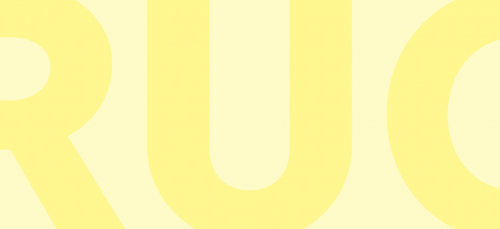



Rasmus Godiksen
Director, Head of Risk Management, EKF Denmark’s Export Credit Agency
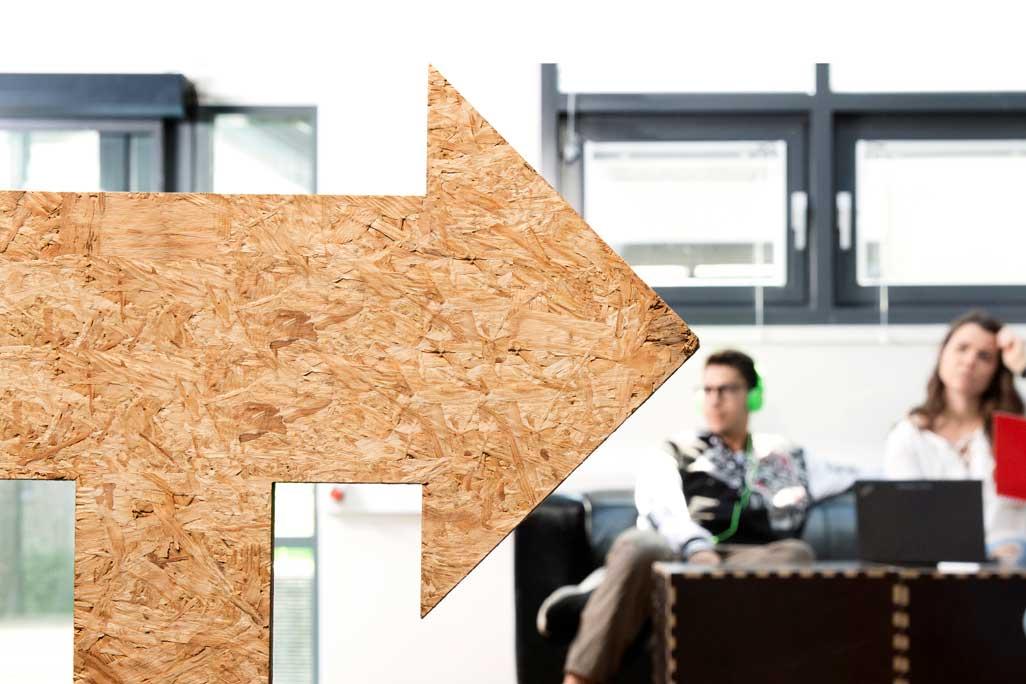
You can choose to spend a semester travelling with your education. Either as an internship at one of our partner companies or at a company that you find yourself. You test your academic and procedural skills in a job, make valuable contacts, and find out whether it is a future career path for you. You can also choose to take a semester of exchange at a partner university abroad, where you can gain international outlook, experience and network.
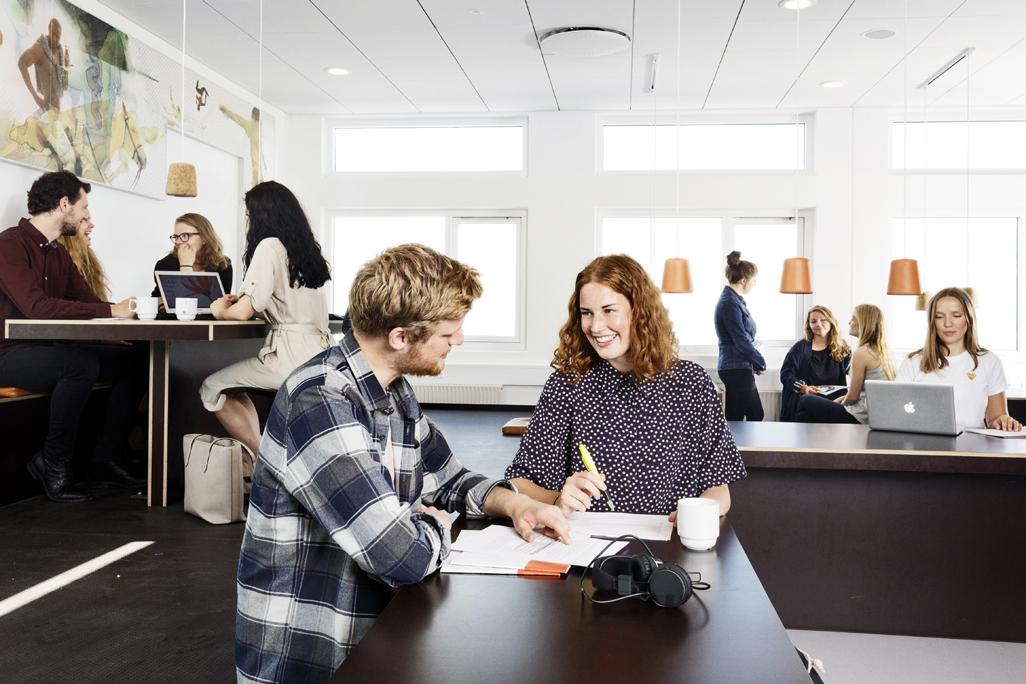
You will be part of a strong academic environment where you will be in close contact with researchers, in dialogue about everything from academic issues, possible methods and theories, ways to create new insights and your wishes for the academic direction of your master’s degree study. You will become part of a social environment typically centred in one building on campus, where researchers and students work next door to each other. You will study within the university's project format, where identification of a problem, in-depth analyses, choice and implementation of a methodological approach, as well as setting up a strong theoretical framework are your responsibilities under academic guidance from a researcher. You will participate in a number of courses which expand your methodological and theoretical knowledge. During a semester, you will identify a significant problem within your subject field and develop the knowledge to produce scientific arguments for possible solution(s). You will gain concrete experience with the entire scientific process.
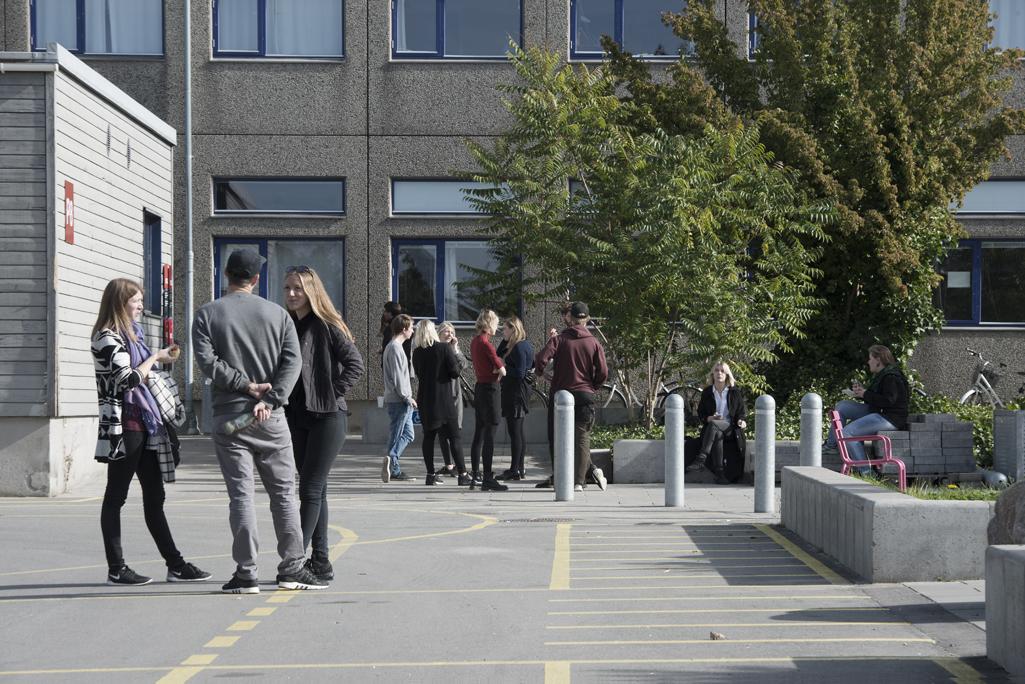
The university is situated on one single physical campus. There are multi-purpose sports courts, a football field, a disc golf course, nature trails along the lake, stream and the fields, a training centre, innovation workshops, a canteen, and a cinema. Our joint meeting place is called Student House RUC, where there is a student-run café and lounge. Both outdoors and indoors, we work to make the campus as sustainable as possible. Among other things, we have reduced energy consumption by 38 percent over the last 5 years and are converting our outdoor areas to wild nature.
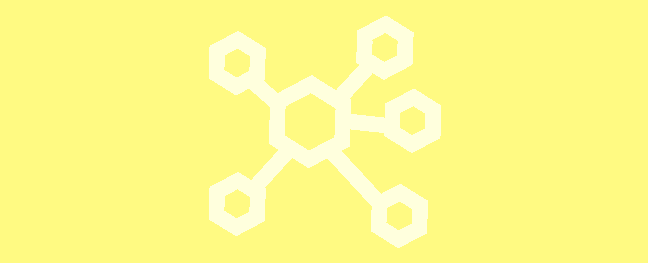
Roskilde University welcomes both exchange and guest students and you will find suggestions for semester packages taught in English.

Contact us if you need advice on choosing a course of study, more information about the content of a degree, or about applying and admission to Roskilde University.
Contact the Study Guidance office
See if there are current events that might be something for you. For example, participate in Open House, see the campus, and meet teachers and students.

Read all about requirements and admission to Roskilde University's master's programmes.